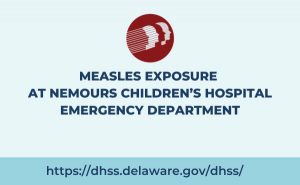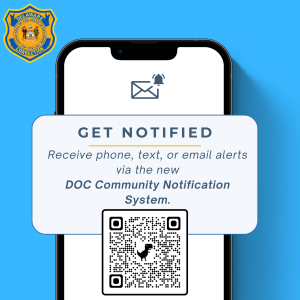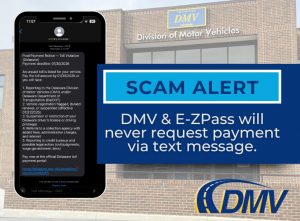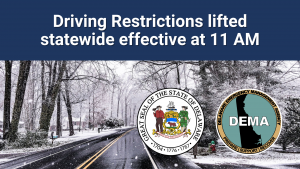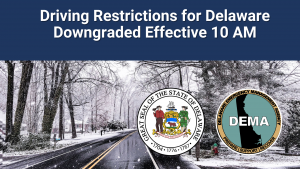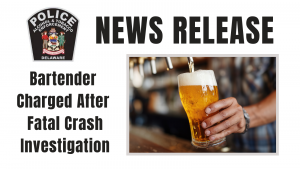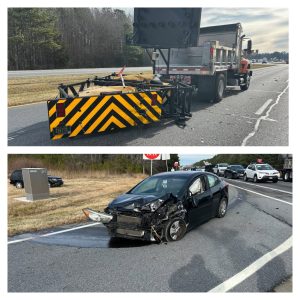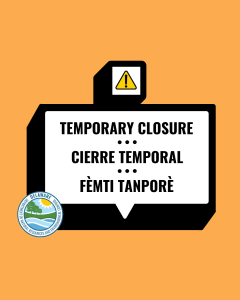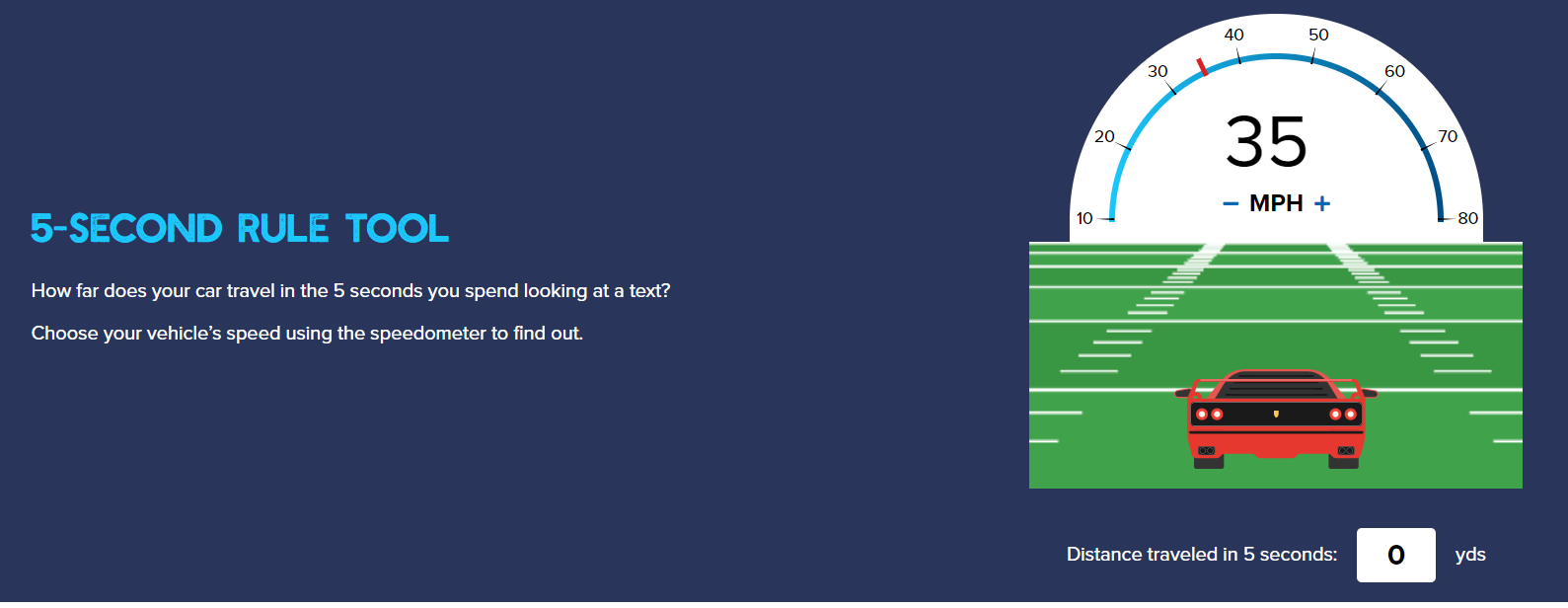
DELAWARE OFFICE OF HIGHWAY SAFETY LAUNCHES
“BE ALERT AND ARRIVE ALIVE” CAMPAIGN DURING
NATIONAL DISTRACTED DRIVING AWARENESS MONTH
Integrated campaign strategy leverages the reach and influence of Delaware businesses, community partners, and law enforcement to maximize distracted driving awareness
DOVER, Del. (April 8, 2021) — The Delaware Office of Highway Safety (OHS) is leveraging the momentum of National Distracted Driving Awareness Month (April) to launch the new “Be Alert and Arrive Alive” campaign focused on motivating Delawareans to stop activities behind the wheel that contribute to one of the leading causes of crashes in the state. According to the most recent data available from the National Highway Transportation Safety Administration (NHTSA), distracted driving resulted in 3,142 fatalities nationwide in 2019, a ten percent increase from 2018 indicating that distracted driving is a growing traffic safety problem. Distracted driving is as dangerous, if not more dangerous, than drinking and driving. A NHTSA study found that texting while driving is six times more likely to cause a crash than driving under the influence. While the campaign aims to motivate safer behavior among all drivers, OHS is specifically targeting a significant population of distracted driving offenders: males ages 16 to 24 in urban and rural areas of the state. To further gain the attention of this critical audience, communications will focus on putting the dangers of distracted driving and drunk driving on equal footing. But make no mistake: It isn’t just young people who are driving distracted, since drivers in other age groups don’t lag far behind.
“By driving distracted, you’re losing valuable seconds that you may need to avoid a close call or deadly crash,” said Kimberly Chesser, Director, Delaware Office of Highway Safety. “Unfortunately, many people don’t consider distracted driving anywhere near as dangerous as drinking and driving. But OHS wants to correct this misconception to drive home the point of this campaign and help people realize just how serious distracted driving is. The number of distractions is growing all the time, and the consequences of both impaired driving and smartphone use behind the wheel can result in deaths and serious injuries.”
The OHS distracted driving campaign will correspond with two special enforcement periods (April 2–22 and July 15–Aug. 19) being implemented by state and local law enforcement in 2021. OHS is collaborating with several businesses such as cellphone providers, mechanics and gas/convenience stores, and community partners to help deliver the distracted driving awareness message to the public and deliver key messaging directly to the targeted young-male audience. OHS’s campaign strategy will utilize a comprehensive list of communications tactics including digital advertising, paid and organic social media, public relations, grassroots outreach, and the creation of communication toolkits for partnering businesses and organizations. Also, if pandemic guidelines allow, OHS hopes to engage safely with Delawareans at public events during the summer enforcement period.
“Now more than ever, we are faced every day with choices. Some are simple, some more complex. The choices you make when you get in your vehicle should be easy. Make a conscious effort to put your phone down and buckle up when you’re ready to drive. By making this choice, you are choosing to protect yourself and those you care about,” Sarah Cattie, Distracted Driving Program Manager, Delaware Office of Highway Safety.
2020 Distracted Driving Delaware Statistics*
- 37% of drivers involved in distracted driving crashes were between the ages of 20 and 29, with 63% of those being males.
- 43% of distracted driving crashes resulted in injuries; 12 distracted-driving-related deaths occurred resulting in 11% of the overall fatalities for 2020.
- Distracted driving crashes occurred most often between the hours of 2 p.m. and 5 p.m. with Saturday having the highest number of crashes.
- It takes your brain 13 seconds before it refocuses on the road after looking at a cellphone.
- If a person takes their eyes off the road for just 5 seconds while driving at just 30 mph, the vehicle will travel approximately 75 yards in an unsafe “distracted” situation.
*Please note, there are pending investigations for 2020 and these are not final statistics for 2020. They are generated from the most recent data available at the time of this press release.
OHS encourages drivers to use the 5-Second Rule Tool, available here, to help them visualize how far their vehicle will travel at any given speed during “just a glance” at a cellphone, radio display, GPS, etc.
Distractions to Avoid
- Texting or talking on a handheld phone (including speakerphone)
- Searching for items in a purse or wallet
- Checking the GPS
- Watching a crash on the side of the road
- Changing the radio or music selection
- Talking with passengers
- Reaching for an item that has fallen on the floor
According to OHS, the best rule to follow is to prepare everything, from silencing your cellphone to adjusting temperature levels, seat position, and mirrors before getting behind the wheel or starting the engine to prevent distracting temptations.
Key Enforcement Locations
OHS will fund distracted driving enforcement across the state during the special enforcement periods. An emphasis will be placed on the key locations listed below.
- DE-4 Newark/Christiana area (between Marrows Road and DE-58)
- US-40 Bear area (between DE-72 and DE-7)
- DE-24 Laurel area (between Shiloh Church Road and Curley Drive)
- Georgetown (town limits)
- DE-1 Lewes/Rehoboth area (DE-1/Wescoats Road between Savannah Road and Rehoboth Avenue split)
For more information on the campaign, statistics, and education on eliminating distracted driving risks, visit ArriveAliveDE.com/Be-Alert/.
About the Delaware Office of Highway Safety
The Office of Highway Safety (OHS) is committed to improving the safety of Delaware’s motoring public by focusing on behavioral traffic safety issues, such as impaired driving, seat belt use, speeding, child passenger safety, pedestrian and bicycle safety, motorcycle safety, and teen driving issues. Follow the Delaware Office of Highway Safety on ArriveAliveDE.com, Facebook, Twitter, Instagram, and Snapchat.




